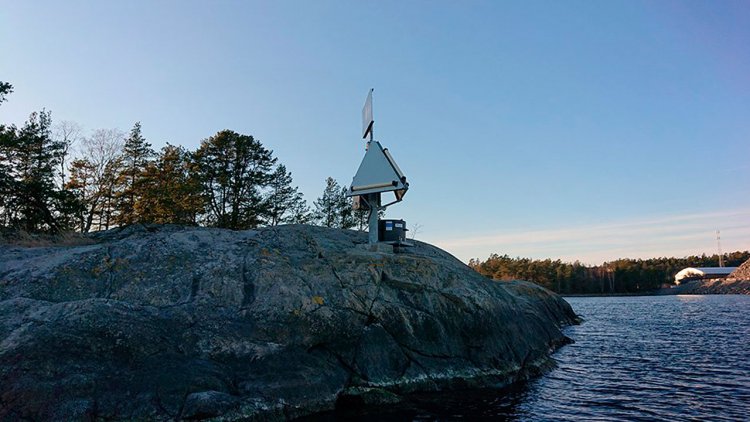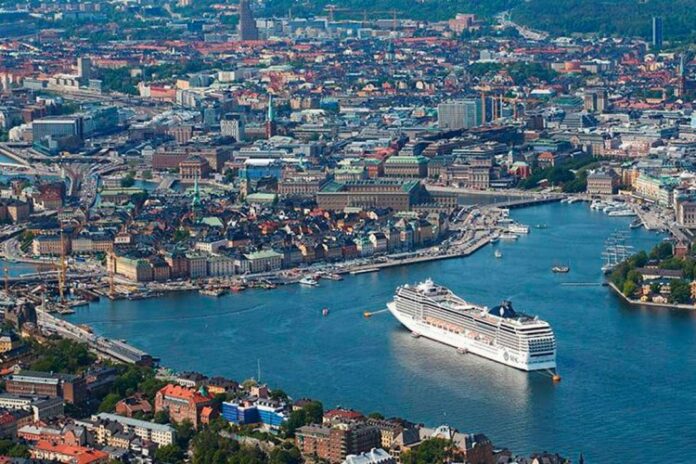The fuel cell is part of a pilot project within the framework of the EU Intelligent Sea project, which aims to use digitalisation to increase safety and efficiency in shipping fairways.
One of four illuminated screens that guide vessel traffic in the fairway leading to Stockholm Norvik Port was equipped with the fuel cell unit in March. The fuel cell, which runs on methanol, provides a back-up to the existing solar cell panels that power the functions of the navigational marker. The pilot trial is part of the EU Intelligent Sea Project, which Ports of Stockholm is taking part in together with the Port of Naantali and the Finnish company Artica.
Artica has delivered all four of the digital smart navigation markers with illuminated screens that Ports of Stockholm is responsible for. The navigation markers have mobile network internet connection and can be monitored and controlled remotely.
Fredrik Lindstål, Chair of the Board at Ports of Stockholm, explains:
“This is an excellent example of how innovative and sustainable solutions are utilized at the modern Stockholm Norvik Port. Using exciting new technology from our suppliers, supported by EU funding, we have a climate smart solution that also contributes to improved maritime safety.”
The illuminated screens that are the focus of the pilot trial are powered by rechargeable batteries connected to solar cells. Solar energy is sufficient to power the smart navigational markers throughout the year in most of Europe and in the UK. In the Nordic countries however, with the much darker winters, this pilot project is developing the possibilities to support the markers with methanol fuel cells at times when sunlight does not provide enough energy. While the solar cell panels can supply the electrical needs during the summer months, the methanol fuel cells cover the supplementary power needed to replenish the batteries during the dark winter months.

Jonas Andersson, Nautical Coordinator at Ports of Stockholm, says:
“The methanol fuel cells help charge the batteries during the winter. This enables significantly higher energy use than the solar panels alone can generate, which in turn increases the possibilities to use supplementary equipment, such as weather stations, cameras and even 5G network connections.”
The small fuel cells have been on the market for a number of years, for example as back-up solutions for telecom systems and weather stations in remote locations, as well as for private use in boats and mobile homes. The fact that the method has not been more widely used in a maritime context may be because the salt in sea water has a corrosive effect. To mitigate this, Artica has developed a filtered ventilation system that is now on trial in the Stockholm Norvik Port navigational marker.
The EU Intelligent Sea Project will run from 2018 until 2022. The project is funded by an EU grant from the Connecting Europe Facility (CEF) programme.



